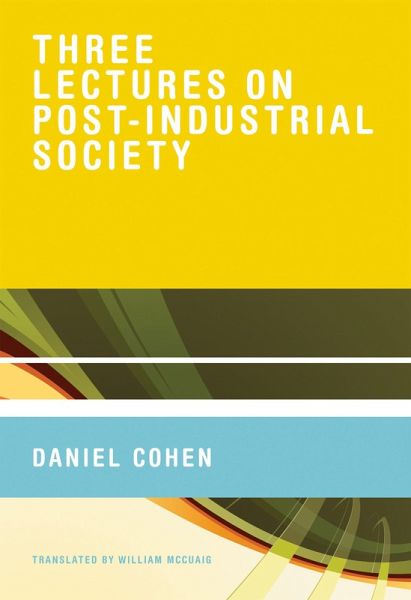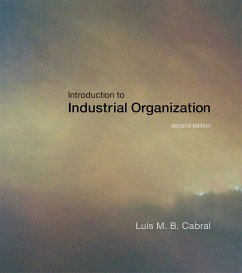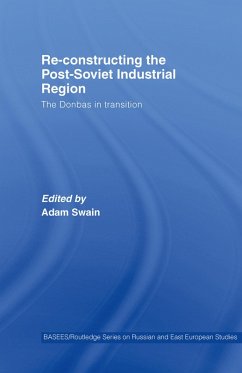
Three Lectures on Post-Industrial Society (eBook, ePUB)

PAYBACK Punkte
6 °P sammeln!
A noted economist analyzes the upheavals caused by revolutions in technology, labor, culture, financial markets, and globalization.In this pithy and provocative book, noted economist Daniel Cohen offers his analysis of the global shift to a post-industrial era. If it was once natural to speak of industrial society, Cohen writes, it is more difficult to speak meaningfully of post-industrial society. The solidarity that once lay at the heart of industrial society no longer exists. The different levels of large industrial enterprises have been systematically disassembled: tasks considered nonesse...
A noted economist analyzes the upheavals caused by revolutions in technology, labor, culture, financial markets, and globalization.
In this pithy and provocative book, noted economist Daniel Cohen offers his analysis of the global shift to a post-industrial era. If it was once natural to speak of industrial society, Cohen writes, it is more difficult to speak meaningfully of post-industrial society. The solidarity that once lay at the heart of industrial society no longer exists. The different levels of large industrial enterprises have been systematically disassembled: tasks considered nonessential are assigned to subcontractors; engineers are grouped together in research sites, apart from the workers. Employees are left exposed while shareholders act to protect themselves. Never has the awareness that we all live in the same world been so strongand never have the social conditions of existence been so unequal. In these wide-ranging reflections, Cohen describes the transformations that signaled the break between the industrial and the post-industrial eras. He links the revolution in information technology to the trend toward flatter hierarchies of workers with multiple skillsand connects the latter to work practices growing out of the culture of the May 1968 protests. Subcontracting and outsourcing have also changed the nature of work, and Cohen succinctly analyzes the new international division of labor, the economic rise of China, India, and the former Soviet Union, and the economic effects of free trade on poor countries. Finally, Cohen examines the fate of the European social modelwith its traditional compromise between social justice and economic productivityin a post-industrial world.
In this pithy and provocative book, noted economist Daniel Cohen offers his analysis of the global shift to a post-industrial era. If it was once natural to speak of industrial society, Cohen writes, it is more difficult to speak meaningfully of post-industrial society. The solidarity that once lay at the heart of industrial society no longer exists. The different levels of large industrial enterprises have been systematically disassembled: tasks considered nonessential are assigned to subcontractors; engineers are grouped together in research sites, apart from the workers. Employees are left exposed while shareholders act to protect themselves. Never has the awareness that we all live in the same world been so strongand never have the social conditions of existence been so unequal. In these wide-ranging reflections, Cohen describes the transformations that signaled the break between the industrial and the post-industrial eras. He links the revolution in information technology to the trend toward flatter hierarchies of workers with multiple skillsand connects the latter to work practices growing out of the culture of the May 1968 protests. Subcontracting and outsourcing have also changed the nature of work, and Cohen succinctly analyzes the new international division of labor, the economic rise of China, India, and the former Soviet Union, and the economic effects of free trade on poor countries. Finally, Cohen examines the fate of the European social modelwith its traditional compromise between social justice and economic productivityin a post-industrial world.
Dieser Download kann aus rechtlichen Gründen nur mit Rechnungsadresse in A, B, BG, CY, CZ, D, DK, EW, E, FIN, F, GR, HR, H, IRL, I, LT, L, LR, M, NL, PL, P, R, S, SLO, SK ausgeliefert werden.













